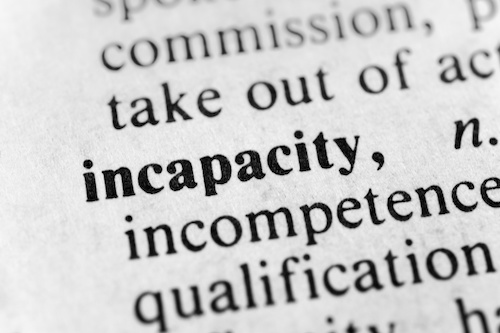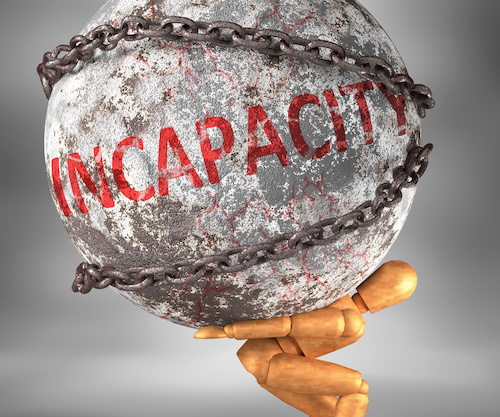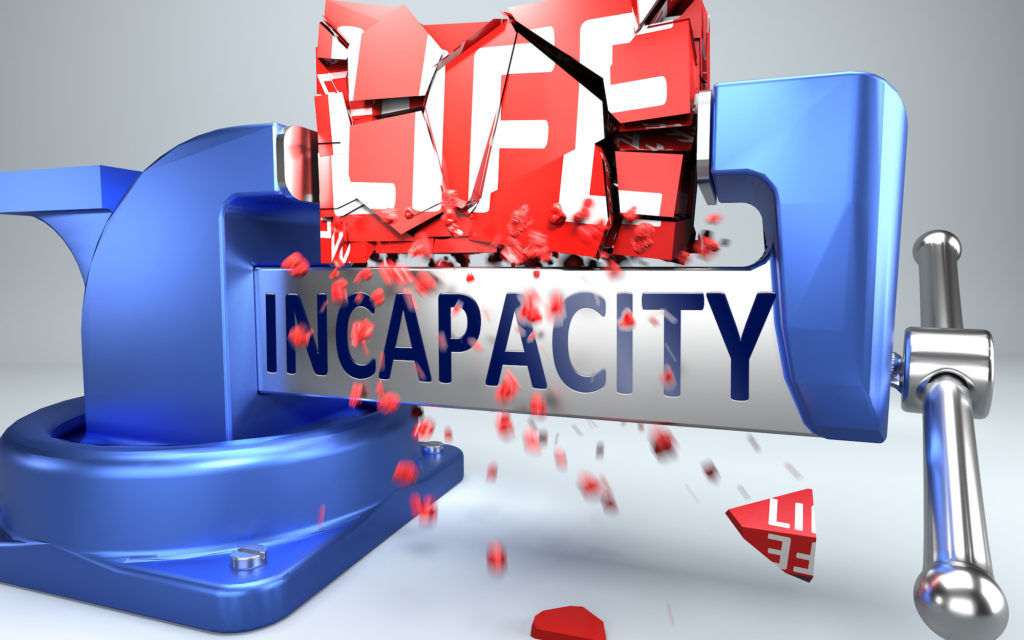
It is perfectly natural to think about estate planning in terms of planning for death. However, planning exclusively for death is woefully inadequate. As medical knowledge and technology improve, so too has life expectancy. To wit, notice the prevalence of long-term care and skilled nursing centers across the country. However, what happens if you face incapacity?
Incapacity and Long Life

Most people agree that a long life is good. However, life alone does not guarantee ideal circumstances. For example, longevity, coupled with physical or mental incapacity, can prove challenging. This is especially true if you fail to prepare for someone to assist you in your later years. On the other hand, with proper incapacity planning, you will know your affairs are in good hands.
What Is Incapacity?

Before you plan for incapacity, let us clarify the definition of incapacitation. First, each state forms its own method for determining legal incapacity. Second, most enact laws which define incapacity. For example, in states which adopted the Uniform Probate Code, an incapacitated person is typically defined as follows:
An “incapacitated person” means someone who, for reasons other age, is unable to receive and evaluate information. They may not be able to make or communicate decisions. These include to essential requirements regarding physical health, safety, or self-care, even with appropriate technological assistance.
Incapacitation

Some states define incapacity more broadly or more narrowly. However, in most states, this definition suffices. Thus, from a purely practical perspective, however, incapacity is an ongoing condition wherein you simply do not have the mental ability to take care of routine tasks for yourself without assistance from someone else. These tasks might include paying bills, cooking meals, bathing, grooming or dressing, taking medication, or being unable to evaluate financial or physical exploitation.
Why a Will Alone Won’t Cut It
Almost all estate plans created in United States include a will. A will is a legal document that allows someone to memorialize their wishes about what will happen after that person dies.

A Will Allows You To:
- Authorize someone to handle your final affairs after you die (an executor or personal representative);
- Name who should receive your accounts and property and in what shares, including successor or backup beneficiaries; and
- Designate guardians of your minor children.
Did you notice a theme in the list above? These must be handled only after you die. That is an important point. A will only goes into effect after you die.
A Will, Alone, Will Not Suffice

So does a will help you if you become incapacitated? The short answer is no. In fact, a will is not any help if you become incapacitated. To provide some level of incapacity planning in your will-based estate plan, you must obtain additional legal documents, including at least a financial power of attorney and an advance directive.
About Skvarna Law in Glendora and Upland, California
Skvarna Law Firm operates offices in Glendora and Upland, California. We provide legal services. We cover San Bernardino, Los Angeles, Orange, and Riverside Counties. This includes several cities. Upland, Ontario, Rancho Cucamonga, Fontana, Colton, Rialto, Chino, Chino Hills, Glendora, Claremont, Pomona, La Verne, Montclair, San Dimas, Azusa, Covina, West Covina, Diamond Bar, Walnut, La Puente, Corona, Norco & Mira Loma. Visit SkvarnaLaw.com to learn more.


